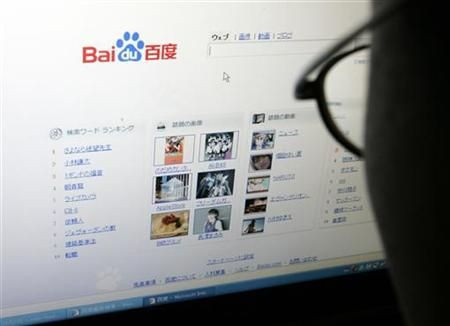Privatized Censorship: China Cracks Down On Image-Rescuing Bribery Business

China’s secret Internet cleanup team, responsible for taking down negative stories for their high-profile clients, made millions of yuan before being shut down by government officials.
According to an investigation by China’s Caixin magazine, these “Internet scrubbers” are paid huge sums to erase any unwanted online mentions of their clients through various under-the-table means -- in other words, censorship that has been privatized.
Gu Dengda, a 30-year-old Beijing-based entrepreneur and public relations consultant, founded his Internet cleanup crew, Yage Times, in 2007. By 2011, his company made 50 million yuan (more than $8 million) in gross profits that year alone. Officially, the business falls under the information technology sector, but insiders told Caixin its main money-maker is getting rid of negative coverage for a hefty price.
Citing one job, the magazine wrote, “Saving the Shenzhen-based firm’s image was not cheap, and it took more than two months to douse the flames of Internet news reports and rumors claiming executives had used a Ponzi scheme to bilk investors.”
In China, bad press at any scale can take down even the biggest politicians or tarnish the names of major companies, so naturally, business for Gu was booming. Yage Times dealt with a wide variety of clients, from multinational companies to wealthy individuals. Most clients, however, were officials in second-tier or third-tier provincial cities.
Gu and his employees would often use bribery as a means of getting rid of negative news surrounding clients, but when that failed, they resorted to creating and sending out forged government documents that demanded specific content be removed from news sites.
Targets of bribery and the faked official documents ranged from low-level employees at public relations firms to major news portals such as Netease and Sohu, and even Internet search giant Baidu.
And while desperate clients were willing to pay lots of money for the illegal services provided by Yage Times, it seems that Gu is now paying the price.
Gu is now being held under police custody because of his shady, if lucrative, business practices. He is awaiting trial and has been charged with various crimes, including bribery. According to the report, Gu is one of at least 10 Internet- scrubbing specialists currently being detained by authorities. Additionally, Chinese authorities uncovered several other firms that operate under similar IT or public relations facades that also provide the illegal services.
According to Caixin’s report, China’s authorities were determined to stop such underground business practices for good. “Authorities were so determined to leave no stone unturned that every uniformed officer in the district was dispatched for the raids, even a forensic examiner,” the report said. More than 100 police stormed Yage’s Beijing offices, arresting more than 100 employees — from janitors to Gu himself -- and shutting down their operations.
According to the South China Morning Post, ironically, in standard Chinese-censorship style, many of the posts responding to the Caixin report were quickly removed from news sites.
© Copyright IBTimes 2024. All rights reserved.






















